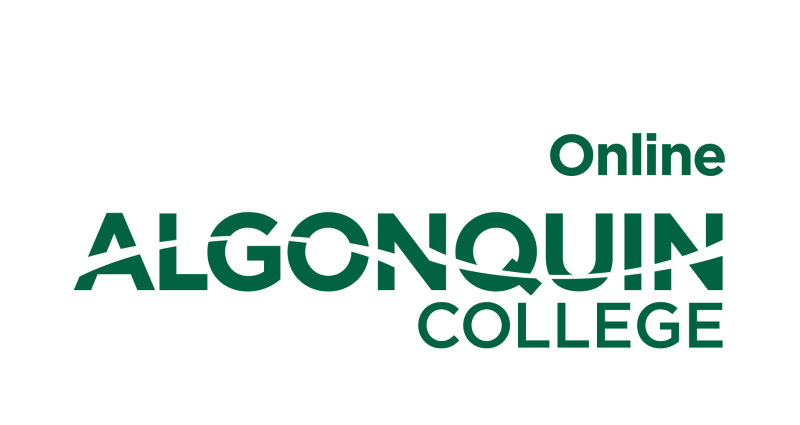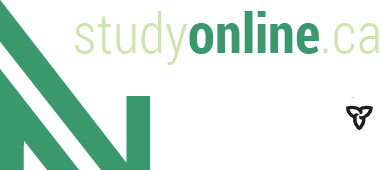Community and Justice Services (Full-time)
Description
Choose a career that teaches you to fight for social justice!
The two-year Community and Justice Services Ontario College Diploma program emphasizes alternatives to policing and prisons and teaches students skills to work with people and communities to address issues such as criminalization, poverty, affordable housing scarcity, food insecurity and immigration. Through theory and practical experiences, the program teaches you to work with people and communities in ways that respect their inherent dignity and humanity. Learn to understand the historical, political and economic forces that create these social justice issues.
In this program, you develop skills such as a critical analysis, advocacy, community organizing, group facilitation, conflict mediation, and individual support work with adults, youth and children. You learn the importance of addressing issues not just on an individual level, but also at a community-based level. Woven throughout the program is a commitment to human rights, social justice, and alternatives to policing and prisons.
Study topics include:
- Indigenous studies
- anti-racism/anti-oppression
- gender and sexuality studies
- disability justice
- trauma-informed practices
- addiction and harm reductions
- mental health
- community building practices
As a student, you participate in a field placement experience in the community and justice field. In this placement, you identify, practise and integrate skills and theory that you have learned in the program.
SUCCESS FACTORS
This program is well-suited for students who:
- Have an interest in social justice and working towards change in their community.
- Have a commitment to anti-racism.
- Have a strong sense of empathy for others.
- Are collaborative and comfortable working and learning in group environments.
- Are able to work independently.
COLLEGE ELIGIBILITY
- Ontario Secondary School Diploma (OSSD) or equivalent. Applicants with an OSSD showing senior English and/or mathematics courses at the Basic Level, or with Workplace or Open courses, will be tested to determine their eligibility for admission; OR
- Academic and Career Entrance (ACE) certificate; OR
- General Educational Development (GED) certificate; OR
- Mature Student status (19 years of age or older and without a high school diploma at the start of the program). Eligibility may be determined by academic achievement testing for which a fee will be charged.
PROGRAMS ELIGIBILITY
- English, Grade 12 (ENG4C or equivalent).
- Applicants with international transcripts must provide proof of the subject-specific requirements noted above and may be required to provide proof of language proficiency. Domestic applicants with international transcripts must be evaluated through the International Credential Assessment Service of Canada (ICAS) or World Education Services (WES).
- IELTS-International English Language Testing Service (Academic) Overall band of 6.0 with a minimum of 5.5 in each band; OR TOEFL-Internet-based (iBT)-overall 80, with a minimum of 20 in each component: Reading 20; Listening 20; Speaking 20; Writing 20; OR Duolingo English Test (DET) Overall 110, minimums of 110 in Literacy and no score below 95.
Not sure if you meet all of the requirements? Academic Upgrading may be able to help with that.
Should the number of qualified applicants exceed the number of available places, applicants will be selected on the basis of their proficiency in English.
PROGRAM SPECIFIC REQUIREMENTS:
- Though not an admission requirement, applicants must note the important information listed below regarding program-specific requirements which includes a Police Record Check.
- Upon admission to the program, all students must complete the College`s Health Assessment process, which includes ensuring that immunizations are up to date.
- Upon admission to the program, all students must ensure that their immunizations are up to date.
- Any student studying in any level two courses over the summer will NOT be eligible for field placement until all credits have been successfully completed. This means that students who successfully complete their level two studies by the end of April will be given first consideration during the field placement selection process.
- Successful completion of field placement is a requirement for graduation from the Community and Justice Services program. Agencies that provide placement opportunities require you to have a clear Police Records Check for Service with the Vulnerable Sector (PRCSVS). Your acceptance for placement is at the discretion of the agency. If you register in the program without a clear PRCSVS and as a result are unable to participate in placement, you will not be able to graduate.
- For online students to transfer on campus for the second year, students must have completed Level 02 by May 1st of the year they intend to transfer. Students who have not completed Level 02 by this date will be required to wait to transfer the next academic year.
- You are required to obtain passing grades in all program courses in order to proceed, and if you fail three or more courses, you will not be allowed to continue in the program.
FIELD PLACEMENT ELIGIBILITY
To be eligible for placement, all third-level students must:
- have completed all of Levels 01, 02 and 03 courses with a minimum grade point average of 2.0
- submit a Police Records Check for Service with the Vulnerable Sector (PRCSVS).
- Note: Acceptance for placement is at the discretion of appropriate and approved program partner agencies. Also, it is the responsibility of the student to pay for and obtain all program and placement required documents and certifications.
COURSES:
Level: 01
COR1834 Canadian Legal System 1
COR1910 Social Justice Seminar
COR1914 Community and Justice Resources
COR1917 Indigenous Studies
COR1919 Interviewing and Counselling Skills
COR1959 Community Building Practices
ENL1813A Communications I
GED5007 Transatlantic Slavery and Its Abolition
COR1910 Social Justice Seminar
COR1914 Community and Justice Resources
COR1917 Indigenous Studies
COR1919 Interviewing and Counselling Skills
COR1959 Community Building Practices
ENL1813A Communications I
GED5007 Transatlantic Slavery and Its Abolition
Level: 02
COR1740 Mental Health
COR1800 Sexuality and Gender Studies
COR1803 Disability Justice
COR1835 Canadian Legal System 2
COR1916 Group Facilitation
COR1960 Trauma-Informed Practice
COR1961 Anti-Racism/Anti-Oppression
ENL1823A Communications II
COR1800 Sexuality and Gender Studies
COR1803 Disability Justice
COR1835 Canadian Legal System 2
COR1916 Group Facilitation
COR1960 Trauma-Informed Practice
COR1961 Anti-Racism/Anti-Oppression
ENL1823A Communications II
Level: 03
COR1801 Ethics and Professional Practice
COR1802 Working with Children, Youth and Families
COR1804 Advocacy and Crisis Prevention
COR1805 Land-Based Social Justice Education
COR1806 Immigration & Settlement
COR1807 Transformative Justice
COR1949 Addictions and Harm Reduction
ENV0002 Environmental Citizenship
COR1802 Working with Children, Youth and Families
COR1804 Advocacy and Crisis Prevention
COR1805 Land-Based Social Justice Education
COR1806 Immigration & Settlement
COR1807 Transformative Justice
COR1949 Addictions and Harm Reduction
ENV0002 Environmental Citizenship
Level: 04
COR1963 Integrative Seminar
COR1965 Field Placement
COR1966 Field Placement Seminar
COR1965 Field Placement
COR1966 Field Placement Seminar
General Education Elective: choose 1
Note: Check with the institution regarding start/end dates, prices, and delivery method. These may vary according to program, section, and/or semester.
Related Courses
- Addictions and Harm Reduction
- Canadian Legal System 1
- Communications II
- Community and Justice Resources
- Community Building Practices
- Canadian Legal System 2
- Ethics and Professional Practice
- Field Placement Seminar
- Anti-Racism/Anti-Oppression
- Group Facilitation
- Indigenous Studies
- Interviewing and Counselling Skills
- Advocacy and Crisis Prevention
- Introduction to Psychology
- Introduction to Sociology
- Mental Health
- Integrative Seminar
- Sexuality and Gender Studies
- Social Justice Seminar
- Trauma-Informed Practice
- Working with Children, Youth and Families
- Youth Justice
- Communications I
- Introduction to Criminology
- Disability Justice
- Field Placement
- Transformative Justice
- Transatlantic Slavery and Its Abolition
- Land-Based Social Justice Education
- Immigration & Settlement
- Environmental Citizenship
- Anti-Racism, Discrimination and Equity, (Racism and Discrimination)
Overview

- Institution: Algonquin College
- Program type: Diploma
- Language: English
- Program Code: 0466X09FAO
- Delivery Method: Fully Online/Distance
Disclaimer:
Check with the institution regarding start/end dates, prices, and delivery method. These may vary according to program, section, and/or semester.
Check with the institution regarding start/end dates, prices, and delivery method. These may vary according to program, section, and/or semester.
